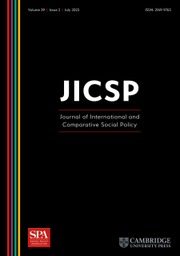No CrossRef data available.
Article contents
Poverty attributions in Guyana: Between self-interest, resentment, and ideology
Published online by Cambridge University Press: 07 November 2023
Abstract
This study examines which poverty attributions are present in Guyana, a developing country in South America, and tests which variables explain these attributions in a non-Western context by linking them to structural characteristics, feelings of resentment, and values. First, using survey data from the Values and Poverty Study in Guyana (N = 1,557), we find that the traditional three-tier model does not adequately capture Guyanese attributions of poverty. Instead, confirmatory factor analysis identifies some subdimensions of structural attributions that refer to both social and economic structure, a hybrid dimension linking poverty to family breakup, and explanations related to social and individual fate. Second, we examine the impact of feelings of resentment on poverty attributions. In particular, experiences of powerlessness foster structural, fatalistic, and family attributions of poverty, illustrating the role of a lack of external locus of control. Finally, our study shows that ideological values and egalitarianism have the strongest predictive power.
- Type
- Original Article
- Information
- Journal of International and Comparative Social Policy , Volume 39 , Issue 2 , July 2023 , pp. 147 - 169
- Copyright
- © The Author(s), 2023. Published by Cambridge University Press on behalf of Social Policy Association




